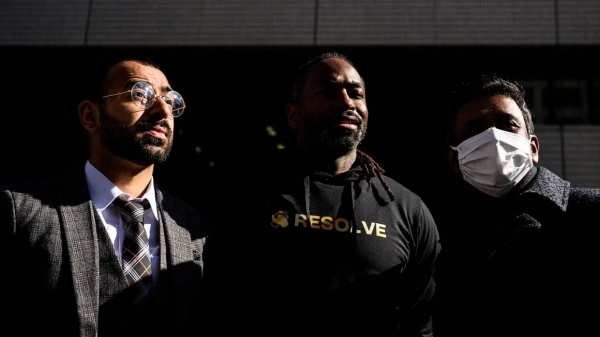
Three foreign-born residents in Japan are suing the country’s government over alleged racial profiling, highlighting an ongoing debate about Japanese identity and nationality.
The three plaintiffs, all residents of Tokyo, filed the lawsuit in the Tokyo National Court and held a news conference with their lawyers on Monday, according to public broadcaster NHK.
The suit alleges they were questioned by police on the basis of their race, skin color, nationality, and other factors, constituting discrimination in violation of Japan’s constitution, NHK reported.
They are seeking three million yen (about $20,355) in compensation per person from the national government, the Tokyo metropolitan government, and the Aichi prefectural government.
One plaintiff came to Japan from India after marrying his wife, and has lived there for more than 20 years, NHK reported. Since then, he has been repeatedly stopped and questioned by police officers on the street, sometimes twice a day. It got so bad he became afraid to leave the house at times, he said, according to NHK.
Another plaintiff, a Pakistani-born Japanese citizen, said during the news conference, “I think that people in Japan have the image that foreigners who look like foreigners commit crimes.”
“I have been cooperating with (police) because I thought it was important for maintaining public safety, but when it happened not once but more than 10 times, I began to have doubts indeed,” he added, according to NHK.
The third plaintiff is an American-born man who said he hoped to raise awareness of the issue among the Japanese population, according to Reuters.
When contacted by CNN, the Aichi government declined to comment on the specific case — but said its police officers receive training with “respect for human rights,” and are committed to conducting their duties in accordance with the prefecture’s human rights ordinance.
Japan is an ethnically homogenous country with comparatively low levels of immigration, which in recent years has prompted authorities to push for more foreign residents and workers to plug gaps left by an aging population.
Japan has struggled to balance its conservative views on immigration with the need for new and younger workers, though a 2018 Pew survey showed that 59% of Japanese people believed immigrants would make the country stronger.
The country’s high ethnic homogeneity means people who look different can attract unwanted attention, and feel othered even if they identify as Japanese – especially those with darker skin.
For instance, people who are “hafu” – the Japanese word for “half,” referring to those who are ethnically half Japanese – have described being treated as foreigners even if they are Japanese nationals.
A number of controversies over the years have highlighted these prejudices, and raised questions about beauty standards and what it means to be Japanese. In 2019, noodle company Nissin apologized after being accused of “whitewashing” tennis star Naomi Osaka – who is of Japanese and Haitian heritage – in an animated ad that depicted her with pale skin, brown hair and Caucasian features.
And just this month, a nationwide beauty pageant made waves by crowning Ukrainian-born model Karolina Shiino as the “Foremost Beauty of All Japanese Women.” Some critics questioned whether someone without Japanese ancestry could represent the country’s beauty ideals.
But Shiino, a naturalized citizen who has lived in Nagoya since she was 5 years old and speaks fluent Japanese, said she considered herself “absolutely Japanese,” and wanted to be recognized as such.
“After all, we live in an era of diversity — where diversity is needed,” she said. — CNN











